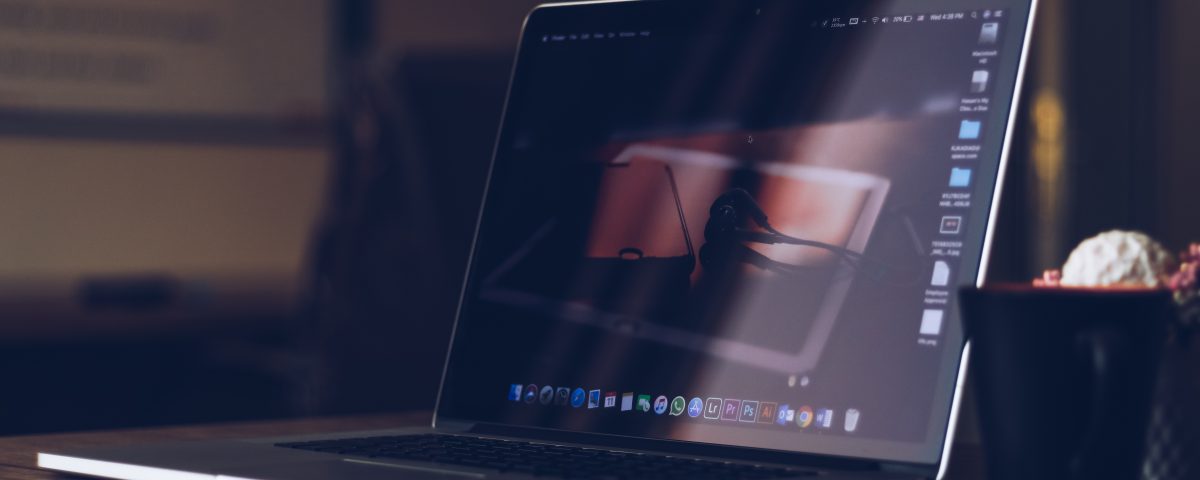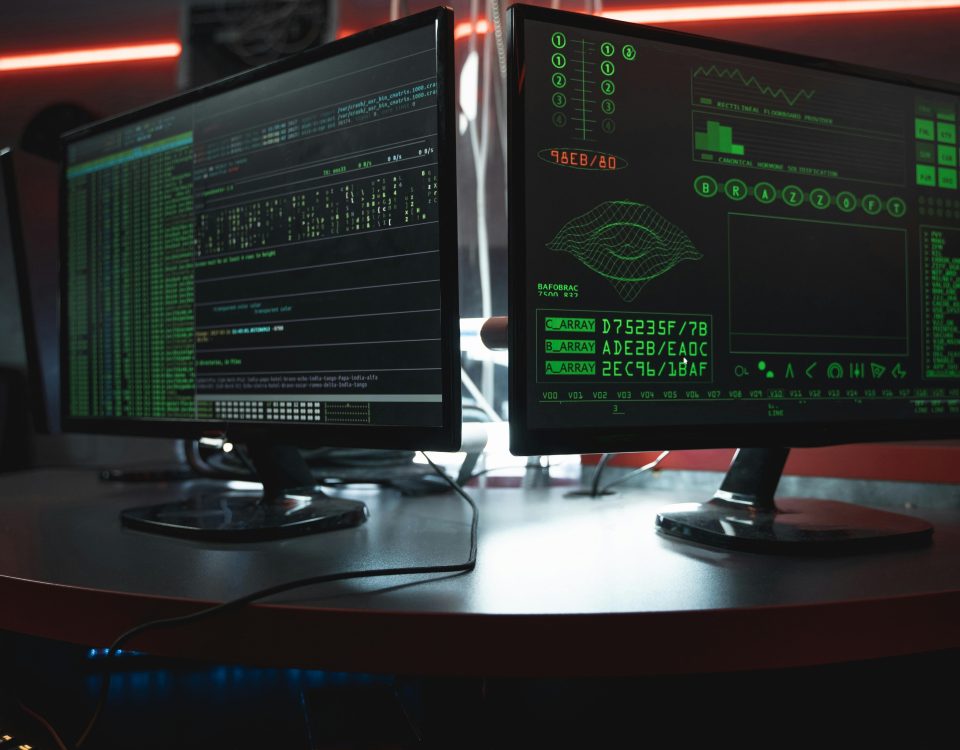/cdn.vox-cdn.com/uploads/chorus_image/image/69875907/akrales_210824_4723_0158.0.jpg)
It’s a decision that may seem like a no-brainer. You’ve got a new job, and they’ve just given you a brand-new ThinkPad. Perfect, you think to yourself. It’s about time I got rid of that 10-year-old MacBook Air.
I’ve been there. Surveys have shown that over half of workers use work-issued devices for personal tasks — whether sending personal messages, shopping online, accessing social media, or reading the news. The prospect of using your work laptop as your only laptop — not just for work, but also for Netflixing, group chat messaging, reading fanfiction, paying bills, and emailing recipes to your mom — is understandably tempting, especially for folks who work from home. Keeping work tasks and personal tasks in one place may feel like an easy way to simplify your life, and it might save space on your desk. Most of all, it may seem like a good cost-saving measure.
But I’m here to be the bearer of bad news: Don’t do that. Please, I’m begging you, don’t do that.
:no_upscale()/cdn.vox-cdn.com/uploads/chorus_asset/file/22785983/mchin_191108_47150002.jpg)
The most important thing to remember is that if you’re using a work laptop, you should assume IT can see what you’re doing. Companies have all kinds of tools available to monitor their employees’ devices — keyloggers, biometric tracking, geolocation, software that tracks web browsing and social media behavior. Over half use some sort of monitoring technique, and their usage has become more popular throughout the COVID-19 pandemic.
And, of course, your company can see what you’re doing in company-run programs like Slack and G-Suite Enterprise. Your novel you’ve been writing at night? Your Slack messages complaining to your co-workers about your boss? IT can see all of that. Even if you have separate personal accounts for these services, it’s still more likely that you’ll mix them up if you’re logged into both on the same computer.
“If you’re on a work laptop, you should assume your IT can see everything,” says Ryan Toohil, who has worked in IT for 20 years and is currently CTO of Aura, a digital security firm. “It’s the company’s laptop. They own it. It’s enrolled in a corporate IT product where they’re going to be able to track where you go on the internet.” Toohil emphasized that not all IT departments are regularly digging through their employees’ web history — but there’s always a risk that they could.
It’s not just your activity that your co-workers might be able to see — they could also get access to anything you download. Loading some personal photos or text messages onto your work device for safekeeping might seem harmless — you’ll just wipe them off before you hand it in, right? But some companies (such as Apple) won’t actually allow you to wipe your device before handing it in, regardless of how personal the contents are. Even if your employer doesn’t have such a policy, there’s still the possibility that you could be fired or laid off at short notice, or your company could collapse without warning.
In these cases, you may have the time to move personal files off your laptop before turning it in, but depending on the circumstances of your termination, you could be locked out of it before you have the chance. “In most companies, the moment that you’re let go, that generally is kicking off an automated process that disables your access,” Toohil says.
Even if you leave your company with plenty of notice, moving a bunch of things off your work device in the last few days of your tenure could raise some eyebrows with IT — who, remember, can see everything you’re doing on that device. “Let’s say you’re going to work at a competitor,” Toohil says. “They’re gonna go through that huge audit trail, see, wow, you moved a bunch of data off this laptop in the week before you left. And that opens up a huge liability for you personally. At a minimum, you’re going to spend some time explaining what you were doing. In the worst case, you took some corporate information.”
:no_upscale()/cdn.vox-cdn.com/uploads/chorus_asset/file/22728999/mchin_210720_4671_0004.jpg)
And if things go wrong, the list of embarrassing possibilities is endless: do you really want to be this woman, who received a text message about pooping on her computer while sharing her screen with executives? Or this employee, who accidentally posted fetish porn in a company-wide group chat? Or this guy, who invited his current boss to join his job interview on Zoom? If you’re mixing work and pleasure on one device, just one mistaken email attachment or one incorrect copy / paste could lead to scenarios that aren’t just embarrassing but could harm your relationships with co-workers and even jeopardize your job.
I know using your work laptop as a personal laptop may seem like a decent cost-saving measure, especially if you’re one of the 51 percent of US employees who work from home at least some of the time. But here’s the good news: a personal laptop doesn’t have to cost very much, especially if you just plan on using it for some emailing, Netflix, and tweeting. Some of the best laptops you can buy are regularly available for under $1,000 — and if you’re open to Chrome OS, some of the best Chromebooks are under $400. I’ve tested all of these devices myself, including the $299 Lenovo Chromebook Duet and the $389.99 Asus Chromebook Detachable, and I’d have no problem using either as my primary personal device. Even a $329.99 iPad can do most laptop things, especially if you buy a keyboard case. Budget laptops have come a long way, and these devices are fast and very well made.
Otherwise, what you’re looking for in a personal laptop will come down to your price range and the features you want. That’s a big benefit of a personal device, in fact — you can tailor the product to your needs and preferences in ways an IT department may not be able to accommodate. You can look at specifications like the processor (an Intel Core i5 or AMD Ryzen 5 should be the most you need for web browsing and Netflix), screen resolution (go for 1080p, unless you’re very particular), storage, memory, and weight (you can get affordable laptops as light as two pounds) — and you can find the combination that suits your lifestyle.
:no_upscale()/cdn.vox-cdn.com/uploads/chorus_asset/file/22653793/mchin_20190905_4631_0001.jpg)
Plus, you can get perks out of personal laptops that you likely won’t see in a run-of-the-mill office notebook. Feel like trying out some games? Get something with a GPU. Are you an artist? Get something with a stylus. Want a tablet to keep your piano music on? Get something with a detachable screen. Like pretty lights? Get something with an RGB keyboard. You can cover the product in all the skins, stickers, and decorations you want, and you can even get something that looks totally ridiculous if that’s your whim. It’s your laptop — you’re the boss!
I’ll end on a personal note: many remote employees have trouble logging off. A majority feel that their personal and professional lives are more blended together than they would be with office access. Now that my work and my leisure happen in the same room, with no commute between them, it’s harder to ignore the nagging notion that I should be working — that even if I’m off the clock, there’s more I could be doing.
Speaking from experience, a personal laptop can help. I’m less tempted to peek at my work email if I’m not logged into it on my computer. And there’s a slight sense of freedom in knowing that Slack notifications won’t pop up while I’m watching Succession because Slack isn’t installed on my Succession-watching device. A personal laptop is an investment — not just in your security, but in your mental health. You should get one.
Original article: https://www.theverge.com/22671697/personal-laptop-work-security-privacy




